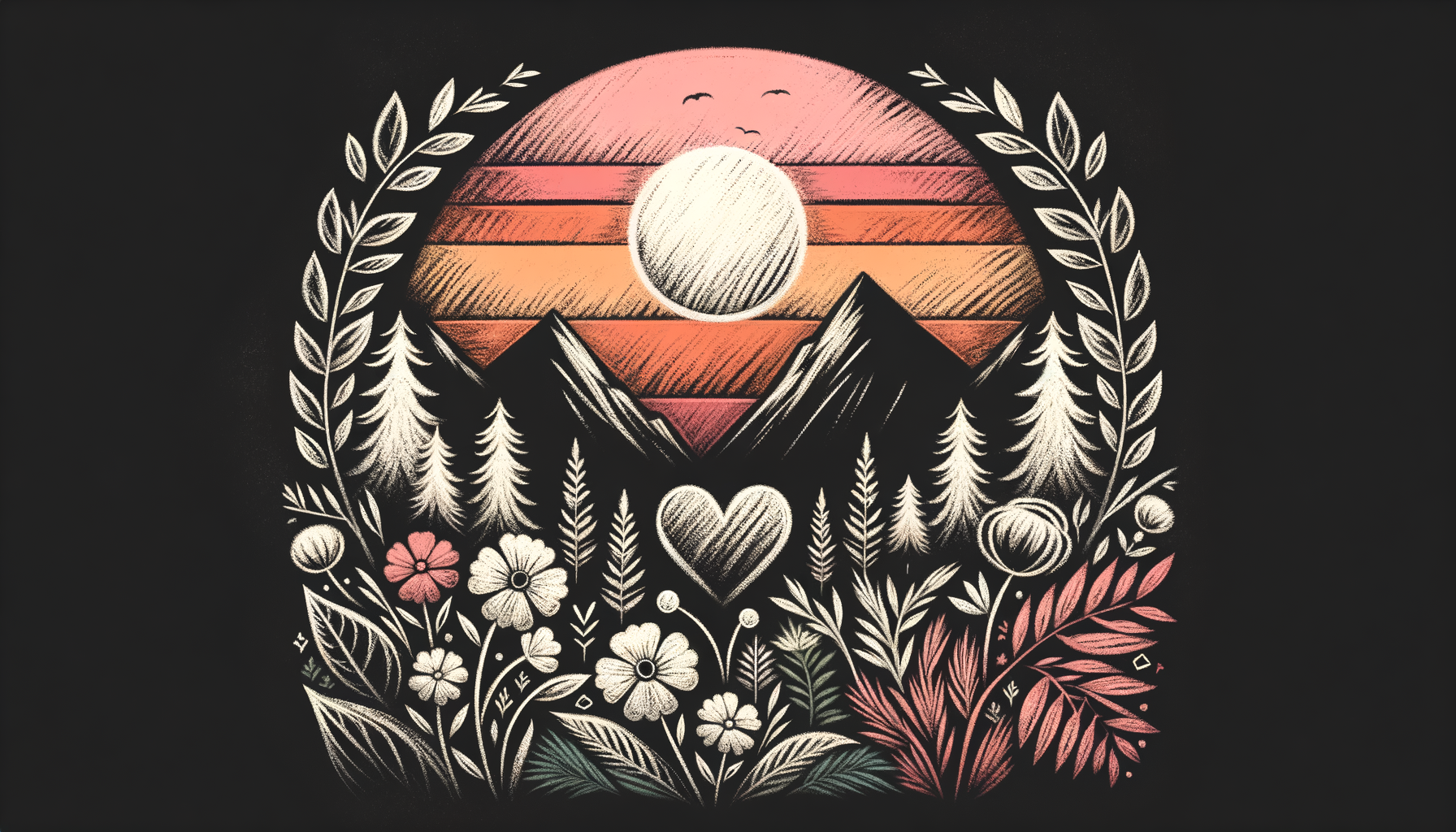The Truth About Love and Lichen: How Thoreau Taught Me to Stay Open to Relationships
There’s a certain quiet intimacy you can only experience while walking alone in the wilderness. It’s in the way the sunlight filters through trembling aspen leaves, or how the wind brushes past you like a soft suggestion. Growing up on a ranch in Montana, I experienced this kind of connection on a daily basis—with the land, the animals, the rhythm of nature itself. But with people? That was a whole other story.
For most of my twenties, I preferred the company of horses and black-eyed Susans to that of actual humans. Call it a coping mechanism or just me being a stubborn Taurus with a fear of vulnerability. Either way, I avoided relationships with the same craftiness my mom’s barn cat used to dodge coyotes. That is, until a certain book quite literally tumbled out of the rafters of an old barn one summer.
It wasn’t a scintillating romance novel or a self-help tome promising to decode the mysteries of love. It was Henry David Thoreau’s Walden—a dusty, dog-eared edition that smelled faintly of hay and mildew. I had to squint to read the faded title on the spine. Spoiler: This is not the kind of book most people associate with life-altering revelations about dating and relationships. But for me, it was exactly what I didn’t know I needed at the time.
Stumbling Upon Solitude
For those who skipped the high school syllabus (no judgment, I barely survived my trig classes), Walden is Thoreau’s philosophical manifesto about simple living in natural surroundings. He retreats to the woods, builds himself a modest cabin, and strips life down to its essentials, all the while asking big, uncomfortable questions like, “What do I truly need?” and “What am I running from?”
For me, it might as well have been subtitled How Willow Avoids People and Why She Shouldn’t. It didn’t take long for the parallels between Thoreau’s retreat into the Massachusetts woods and my own socially resigned dating life to slap me in the face like a low-hanging pine branch.
Take this gem: “I had three chairs in my house; one for solitude, two for friendship, three for society.” At the time, my life had one rickety chair carefully reserved for solitude, and I wasn’t exactly letting anyone else take a seat.
Learning to Leave the Cabin
The first thing Walden taught me about relationships is this: Isolation and simplicity are great for self-discovery, but they’re useless if you stay holed up forever. Thoreau himself writes, "Rather than love, than money, than fame, give me truth.” And yeah, that hit me hard. Because the truth was, in aiming for self-reliance, I’d walled myself off so thoroughly that nervous flirtations at coffee shops or dinner invites made me about as skittish as a wild antelope.
But love isn’t simple. Connection is messy—it multiplies imperfection while deepening joy. And here’s the kicker: It requires letting someone else walk into your metaphorical cabin, even if they track in a little mud from the trail.
I remember applying this insight the first time I went on a date after devouring that book. He was a musician—artsy, enjoys-a-good-charcuterie-board type—and bluntly asked me why I didn’t seem “into people much.” Instead of overthinking my response or laughing it off, I said the first honest thing that came to mind: “I’m not great at letting people in, but I’m working on it.” I didn’t expect a standing ovation for my vulnerability, but the reward was better: an actual conversation that felt like human connection.
Find Your Still Waters
There’s this passage in Walden where Thoreau reflects on Walden Pond itself, writing, “A lake is the landscape’s most beautiful and expressive feature. It is Earth’s eye; looking into which the beholder measures the depth of his own nature.”
A little “poetry-meets-L.L.-Bean-catalog,” sure, but it stuck with me. To build meaningful relationships, we need to cultivate this same kind of stillness within ourselves. How can we reflect back love, trust, or understanding when our surfaces are always choppy, stirred up by distractions, or worst of all, self-doubt?
After finishing the book, I took to journaling. Not about dates or meet-cute scenarios, but about what I wanted and feared most in love. I realized I didn’t just want someone to “complete me” in rom-com fashion. I wanted someone who felt more like the still surface of a mountain pond—someone to reflect the best parts of myself back to me while softening the rough edges. Spoiler alert: You can’t expect that unless you’re willing to show up as that person yourself. Chaotic begets chaotic.
Embracing the Seasonal Rhythms of Love
Here’s something else Thoreau taught me: Life, like nature, moves in seasons. The early stages of any relationship are like spring—bright, blooming, full of potential. But as my mom likes to say, “Even summer skies sometimes hold storm clouds.”
Learning to embrace the ebb and flow of love has been a game-changer. There will be quieter stretches, misunderstandings, and compromises, and that’s okay. Even now, I often reflect on Thoreau’s words: “The fault-finder will find faults even in paradise.” Translation: If you can’t stop nitpicking, you might miss the bigger picture.
Recently, I got into an argument with my partner—something trivial about how they always leave water glasses next to the sink instead of putting them in the dishwasher. The old version of me (pre-Walden) might have spiraled, thinking, “Maybe this relationship isn’t meant to be.” But the new me? I took a walk, reminded myself that flaws are like summer’s unexpected rainstorms, and snagged us a pint of ice cream on the way home as a peace offering.
Let Your Wild Heart Wander
There’s one last takeaway from Thoreau’s masterpiece, and it’s my favorite: Live deliberately. This applies to dating and relationships as much as it does to solo hikes or career choices. It’s easy to go through the motions—to swipe left or right out of boredom, to stay in a stagnant partnership because it’s familiar, or to guard yourself so fiercely that no one even sees the door crack open. But life is short, and love is unpredictable.
Now, whenever I feel myself slipping into old patterns of avoidance, I imagine Thoreau himself raising a skeptical eyebrow and asking, “What are you waiting for?” Maybe it’s melodramatic, but it works. It reminds me that, while the wilds will always tug at my heart, letting someone else wander beside me on the trail doesn’t make me any less independent—or any less myself.
Final Reflection
Thoreau set out to understand his place in the world by embracing simplicity, solitude, and nature. He taught me that those same principles—finding stillness, living deliberately, and allowing yourself to grow with the seasons—can also deepen our connections to other people. Relationships aren’t easy or neat, and they shouldn’t be. And that’s the beauty of them.
So here’s the takeaway: Build your metaphorical cabin, sure, but don’t forget to leave room for a second chair—or maybe even three.




















